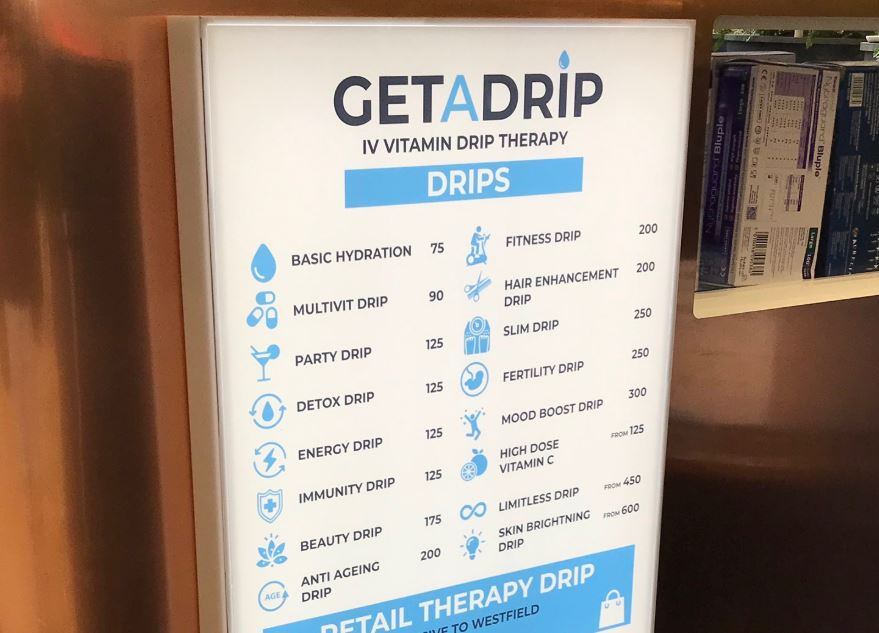Get A Drip, a London-based firm, removed its €278 intravenous drip from sale after the experts’ views that was fuelled by an Twitter outcry criticising its targeting of women struggling to conceive.
“We have made the decision to remove the fertility drip effective immediately from our Get A Drip offering,” said Richard Chambers, Get A Drip’s founder.
“While we stand by the ingredients’ benefits, we understand that the issue of fertility is much deeper than nutrition.
“As a company, we offer health supplements that act to aid and improve overall wellness.”
As well as drips to address fertility, the firm also make available IV drips purported to enhance the immune system and energy levels.
Its range of products also extends to an “anti-ageing drip” for €223, a mood-boosting drip for €334 and a “skin brightening drip” that can cost up to €3,340.
These drips are a blend of vitamins and minerals including vitamin C, glutathione, B complex vitamins and a range of amino acids.
The firm also offer DNA testing, vitamin injections and personalised drips, with the most expensive gene-testing service costing €556.
CCQ concern
The company’s claims has caught the attention of the UK’s Care Quality Commission (CCQ), a body of the UK Government’s Department of Health and Social Care established to regulate and inspect health and social care services in England. It tweeted:
Charities such as the British Pregnancy Advisory Service (BPAS) also welcomed the decision by GetADrip to withdraw the product.
Katherine O'Brien, bpas spokesperson said it “lacked any evidence base, was pitched at an exploitative price and playing on the fears and anxieties of women who may be struggling to conceive”.
“GetADrip has a responsibility to be open and honest with their customers, which clearly has not been the case.
“We understand regulatory bodies are looking into these kind of products and hope these companies and their offers can be properly monitored going forward."
‘Offering false hope’
Earlier this year, the Human Fertilisation and Embryology Authority (HFEA) released new guidance cautioning IVF clinics about the sale of clinically unproven “add ons” to fertility treatment.
The Authority’s chair Sally Cheshire said GetaDrip’s product “offered false hope”.
“The drips were a costly ‘extra’ with no evidence that they work. Experts like Raj Mathur, a consultant gynaecologist at St Mary’s hospital in Manchester, commented that “the ingredients listed in the drip are all available in a balanced diet.”
“From acupuncture to bee pollen, there are many supplements and treatments that claim to work but are simply not supported by evidence.
“It’s important that treatments are done by a medical professional in a regulated fertility clinic. There is no place for quick fix fertility issues on our high streets.”

